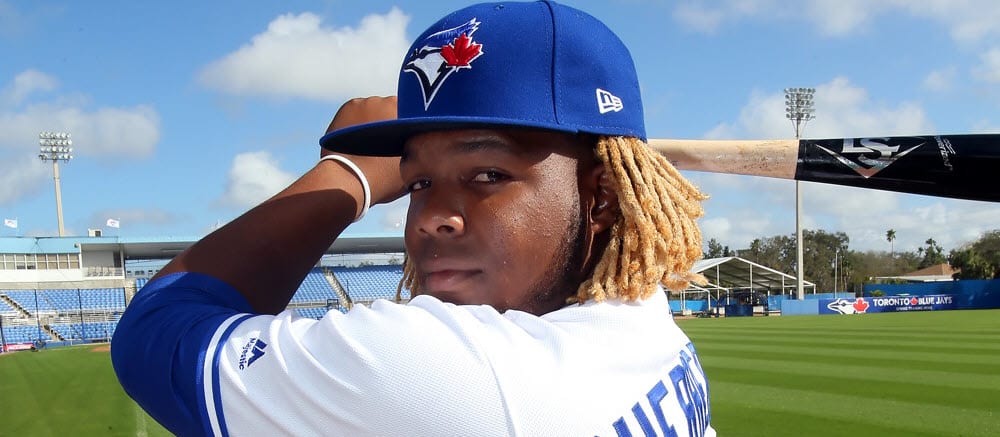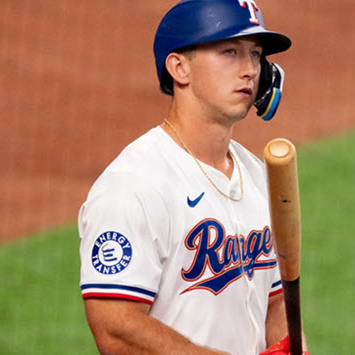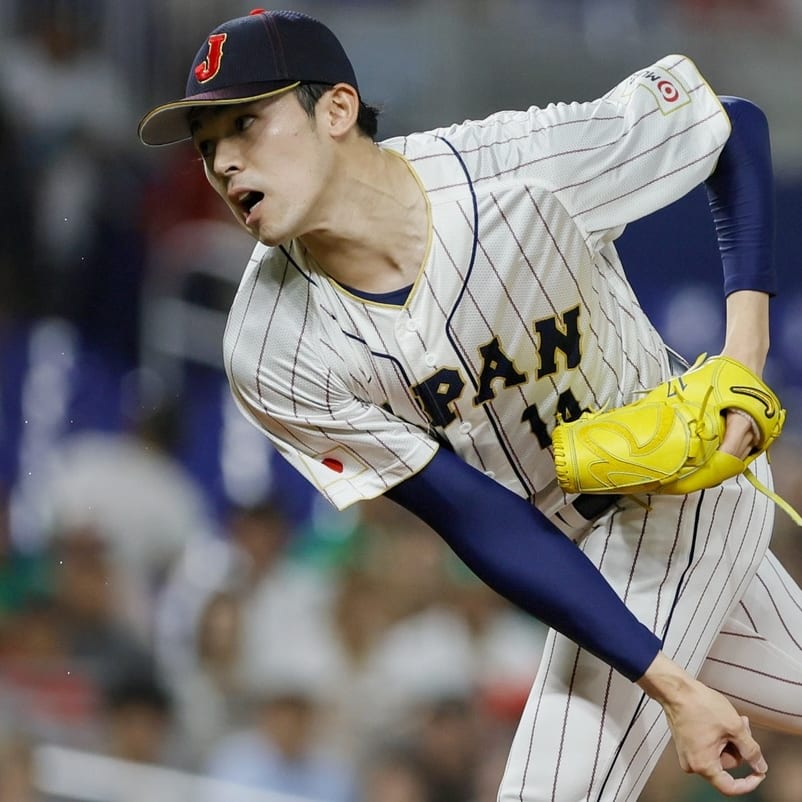This article is part of our Farm Futures series.
Getting an Extra Year of Control
According to the current CBA, players are entitled to free agency after six or more years of major-league service time. A year of service time is defined as 172 days on a major-league roster. This year's MLB regular season stretches 194 days. As long as a player is called up with fewer than 172 days remaining in the season, they will be under their current team's control for seven years, instead of six. With most players, this is far more important than saving $10 or even $20 million by dodging Super Two status. Good players are eventually going to get paid if they stay good, but having that extra year of control puts a team in a better bargaining position when they start to talk about a contract extension with young players, and it also gives the team an extra year right in the middle of that player's prime.
None of this should be celebrated -- teams never get into trouble for this, but it is technically against MLB rules to keep a player in the minors specifically for service-time reasons, and more importantly, I believe it is an unethical practice. However, it is part of my job to try to predict when players will be up, and April 12 is this year's date when teams can start calling up top prospects (with one notable exception) and retain that extra year of control. This is the first year I can recall since I've been
Getting an Extra Year of Control
According to the current CBA, players are entitled to free agency after six or more years of major-league service time. A year of service time is defined as 172 days on a major-league roster. This year's MLB regular season stretches 194 days. As long as a player is called up with fewer than 172 days remaining in the season, they will be under their current team's control for seven years, instead of six. With most players, this is far more important than saving $10 or even $20 million by dodging Super Two status. Good players are eventually going to get paid if they stay good, but having that extra year of control puts a team in a better bargaining position when they start to talk about a contract extension with young players, and it also gives the team an extra year right in the middle of that player's prime.
None of this should be celebrated -- teams never get into trouble for this, but it is technically against MLB rules to keep a player in the minors specifically for service-time reasons, and more importantly, I believe it is an unethical practice. However, it is part of my job to try to predict when players will be up, and April 12 is this year's date when teams can start calling up top prospects (with one notable exception) and retain that extra year of control. This is the first year I can recall since I've been writing this piece where I actually predict multiple top prospects to break camp on the big-league roster, so maybe we're making progress, or maybe I'm just a big sucker.
Here are this year's top options to be called up on, or shortly after April 12:
Vladimir Guerrero Jr., 3B, Blue Jays
Let's start with the Grade 1 oblique strain. If Guerrero does indeed need exactly three weeks to recover, that would mean he would be ready for games on April 1 -- the Buffalo Bisons open play on April 4. It would also mean he would be behind the rest of his Triple-A teammates in terms of getting up to speed for the start of the minor-league season. That said, Guerrero was big-league ready 10 months ago, so if he plays in two or three weeks of games at Triple-A, that could be seen as him completing his spring training. I don't think he will be up on April 12 for the start of a home series against the Rays, which may have been the case if this oblique injury had never happened. However, I do still think he will be up sometime in April, assuming his recovery is roughly three weeks and that he does not experience setbacks. I'm taking three weeks worth of at-bats off my original projection, just to be safe with regard to any delays in his return and to factor in missed time in-season that could be traced back to this injury. This means he is still a top-50 player for me in 2019, but if recent drafts are any indication, he will be available in the fifth round in many mixed-league drafts.
Prediction: Guerrero debuts Tuesday, April 23 at home against the Giants.
Eloy Jimenez, OF, White Sox
Jimenez has also been big-league ready dating back to last summer. If he were called up April 12, the Yankees would benefit from the ticket sales that weekend.
Prediction: Jimenez debuts Monday, April 15 at home against the Royals.
Nick Senzel, OF/2B, Reds
I know Senzel doesn't believe the Reds will break camp with their best team, but I'm not completely ruling it out -- they're attempting to move up their competitive window, and going two or three weeks without Senzel could cost them a game in the standings, which could be the difference between getting the second Wild Card or not. The smart money is still on them sending him to the minors to continue working in center field for a couple weeks.
Prediction: Senzel debuts Tuesday, April 23 at home against the Braves.
Jesus Luzardo, LHP, A's
Maybe I'm the biggest sucker in the room, but I actually believe Luzardo breaks camp with the team. He is their best starting pitcher, and while everyone knows this team lacks significant financial resources, they have shown in the past that they are willing to make win-now moves at the expense of long-term control over a player. Recall that in 2014 they traded prospect Addison Russell for rentals Jeff Samardzija and Jason Hammel in an effort to make the playoffs -- a move that was laughed at by many saber-inclined analysts at the time. They made the playoffs last year, and not doing so this year would represent a step back. They will need every start they can get from Luzardo to get back to the postseason.
Prediction: Luzardo debuts Saturday, March 30, as the home starter against the Angels.
Pete Alonso, 1B, Mets
While Alonso is not a finished product in the way Guerrero and Jimenez are, he also won't gain anything by hitting moonshots off Triple-A pitchers this season. The Mets are trying to make the playoffs this year, but also have a long road trip from April 11 through April 21, making his debut a tricky one to peg (every team would like big-ticket prospects to debut at home).
Prediction: Alonso debuts Sunday, April 14 in Atlanta (a nationally televised game on ESPN).
Forrest Whitley, RHP, Astros
Alright, now we've entered the blind leading the blind section of this article. There are two things I think I know about Whitley in 2019:
- He will be good when he pitches -- 2010 Stephen Strasburg level good.
- The Astros will want him available for the postseason.
What does this mean for his big-league ETA? I really don't know. I wouldn't be surprised if he threw 50 innings for the Astros in the regular season, and I wouldn't be surprised if he logged 140 innings in the big-league rotation -- that's how wide the range of outcomes is on a healthy 2019 for the game's best pitching prospect. One factor at play is that the Astros should cruise to their division title without him, and it's quite possible that none of their five starters gives them any reason to change things up early in the season.
Prediction: Whitley debuts Friday, June 7 at home against the Orioles, with the caveat that this is a fairly random guess.
Kyle Tucker, OF, Astros
Tucker spent 52 days in the big leagues last season, so for the Astros to secure a seventh year of control, they would have to keep him down until June 3, unless they plan on shuttling him back and forth again between the majors and the minors. I think keeping one of your best young hitters (who murdered Triple-A pitching in the second half last year) in the minors for over two months is a pretty awful precedent to set, but the Astros are a pretty heartless organization (see Roberto Osuna), and they have the outfield depth to get away with such a tactic.
Prediction: Tucker debuts Friday, June 7 at home against the Orioles.
Chris Paddack, RHP, Padres
Well, I certainly didn't see this prediction coming. The Padres have openly entertained the idea of breaking camp with Paddack in the rotation, as they did last year with Joey Lucchesi, and if he stays on turn...
Prediction: Paddack debuts Opening Day, March 28 at home against the Giants.
Super Two Status
Usually a player must have accrued at least three years of MLB service time before being arbitration eligible, but those awarded Super Two status are the exception. If a player has fewer than three years of service time, but more than two AND they rank within the top 22 percent of all two-year players in terms of service time, then that player will become arbitration eligible. Super Two players get four years of salary arbitration instead of the typical three, and for a really good player, this can end up costing the team more than $10 million.
Last year's cutoff for Super Two status was two years, 134 days of MLB service time (written as 2.134). Attempting to manipulate the promotion of a top prospect because of Super Two fears is a very inexact science, but there is a general range team's can work with. Here are the last five Super Two cutoffs:
2018: 2.134
2017: 2.123
2016: 2.131
2015: 2.130
2014: 2.133
A general rule of thumb is that if a team calls up a prospect prior to June 1, that player will have a good chance of being awarded Super Two status in a few years.
Considering there is no exact date involved, and it is dependent on what is happening with other players, it is impossible to pinpoint a player's call-up date based on Super Two ramifications. That said, here are some of the top players who could be strategically called up in June or July as their teams look to avoid giving them that extra year of arbitration:
Bo Bichette, SS, Blue Jays
It's really tough to say when Bichette will be up. The Blue Jays are so damn cheap, I wouldn't put it past them to keep him in the minors all year. That said, he'll be ready in June or July and I don't feel like being a curmudgeon with this one.
Prediction: Bichette debuts Friday, June 7 at home against the Diamondbacks.
Fernando Tatis Jr., SS, Padres
I don't think the Padres will care that much about Super Two with Tatis, but it could work out that they think he's ready around the anticipated Super Two cutoff, so a bet on an early-June promotion makes more sense than a bet on a late-May promotion. He could also be down until July or later, or if general manager A.J. Preller is really feeling wild, Tatis could be up in April.
Prediction: Tatis debuts Monday, June 3 at home against the Phillies.
Brent Honeywell, RHP, Rays
Honeywell is on track to start pitching in games in May. I think he will need at least a few starts at Triple-A to knock the rust off, and depending on how he performs, particularly how he's controlling his pitches, he could spend a couple months at Triple-A. His debut date will be dictated by when he is ready, but suffice it say, his timetable will also allow the Rays to only go to arbitration with him three times.
Prediction: Honeywell debuts Monday, July 1 at home against the Orioles.
Nate Lowe, 1B, Rays
The Rays are one of the few teams that really, really cares about Super Two when it comes to prospect promotions, otherwise I'd say there was a chance Lowe could be up in April or May. Once he is up, I expect him to occupy the strong side of a platoon, with Avisail Garcia getting starts at DH against most southpaws.
Prediction: Lowe debuts Sunday, June 2 at home against the Twins.
Yusniel Diaz, OF, Orioles
The Orioles will be quick to summon reinforcements as soon as they are ready this season, and Diaz's development will likely line up well with the team saving money on a fourth year of arbitration. Their long-term outfield should be Diaz, Cedric Mullins, Austin Hays from left to right, and we should see those three out there by the All-Star break.
Prediction: Diaz debuts Tuesday, June 11 at home against the Blue Jays.
Daz Cameron, OF, Tigers
Cameron and Diaz are very similar cases. Sooner than later they will represent clear upgrades over a big-league regular, but they both need more time in the minors from a developmental standpoint. Cameron is by far the Tigers' best option in center field from a defensive standpoint, but they won't want him to struggle mightily at the plate if they can help it.
Prediction: Cameron debuts Tuesday, June 4 at home against the Rays.










